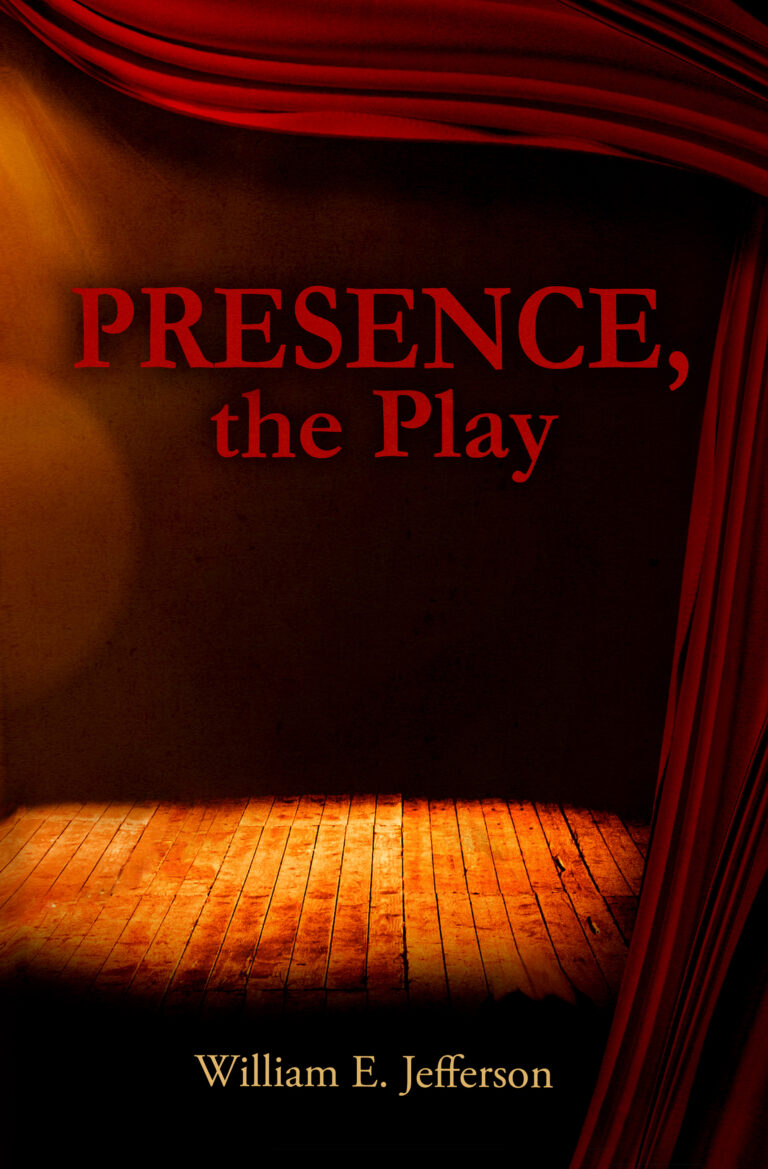In PRESENCE, THE PLAY, author William Jefferson ushers readers through a fantasy world via an unconscious protagonist and playwright named Script. Just as the curtain is poised to rise on the opening night of his latest theatrical production, Presence, Script stands up from his balcony seat, whips around to give a thumbs-up to the stage crew, then rightly stiffens and falls backwards, striking his head on the railing. Having effectively stolen the spotlight from his own opening scene, he falls into a coma.
Thus begins this allegorical romp through a kind of middle-world, a land lodged between reality and dreams where age-old matters of spiritual warfare play out against a backdrop that is, at turns, fantastical and realistic. The story begins in a theater in Estillyen, an idyllic isle brimming with cafes, flower shops and other charming appointments. There is also a monastery housing an order of monks, which includes the ailing Script. Epic, Plot, Writer, Saga, Narrative and Chronicle are more than literary lingo – these are the names of Script’s fellow monks and readers’ first clue that metaphor is heavily at play here. Some are more obvious than others, as in the case of the “tweet” Script hears, which turns out to belong to a bird named “Mock” that accompanies him all the way to his destination: the gates of hell.
Like a hobbit on his first adventure, Script meets up with characters – some historical, some biblical, some absurd – who nudge him along on his journey to the devil’s den. Dialogue is whimsical and rife with parables and riddles as Script, aware he is existing in a parallel consciousness, engages with various creatures and persons. Of course, such a destination requires a mission that is epic in nature, which in this case is fighting Satan, himself, as he aims to assume control of Script’s play for evil purposes, an idea that arises after Presence is streamed live to the abode of the dead and pronounced unsuitable for a human audience.
At the heart of the issue is “presence” as a state of being and awareness, a beneficial “be here now” consciousness that is considered anathema by the devil and his agents who only want the worst for the human race. When Script opines: “I am present tense, without a past place. Therefore, in my case, there’s nothing to erase. I am me, present,” he sums up the simple wisdom of a concept made complex by the human penchant to view life largely through the lenses of past and future.
The author injects “PRESENCE, THE PLAY,” with an undercurrent of Christianity that trembles beneath the surface, finally rearing up full-faced as the story thrums toward its conclusion. And like many a biblical hero, Script must overcome his reluctance and perceived shortcomings to do battle against the powerful forces of evil threatening the existence of his beloved Estillyen and its inhabitants. Surreal, fable-like, symbolic – all describe this morality tale which, in the end, falls more in the camp of familiarity as an old story gets new, albeit thoughtful, treatment.
Though familiar on many levels, PRESENCE, THE PLAY will likely please fantasy readers who thrill to well-written stories of human resilience in the face of spiritual challenges.
~Libby Wiersema for IndieReader


